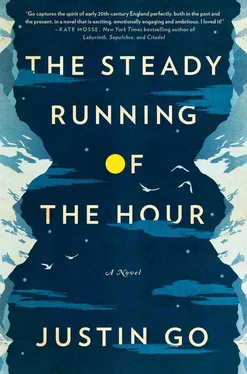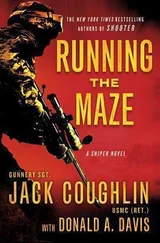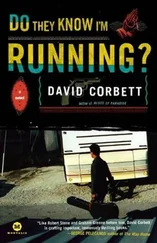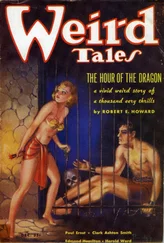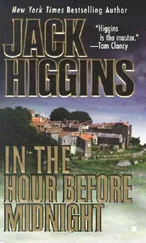Imogen nods. — I’ve heard that before. Of course, on paper I’m Swedish. But I hardly know the country. I’ve scarcely seen Stockholm. And if I had to pick a city, I’d take Paris over London in a heartbeat. Oddly enough, I’m quite attached to Berlin, because it reminds me of my childhood. I don’t know what all this adds up to. I’m not French, I’m not a proper Swede at all, and I’m certainly no German.
— Then you’re English.
She smiles. — If it pleases you.
They talk in French awhile and Imogen tells Ashley that his accent is good. Playfully they exchange a few phrases in Greek, a few whispered rhymes in German.
— Not so loud, Ashley warns. They’ll think you’re a spy. Come to think of it—
Imogen winks at him. — Spies are everywhere. But I spy only for myself.
Ashley leads Imogen along the park’s narrow lake, drained for the war, and they pass the new postal hutments where the mail from France is sorted. They sit on a bench before a large field.
— Would you mind terribly, Imogen says, if I asked you why you joined the army?
— For the uniform. I thought I’d cut a fine figure. And I got tired of getting white feathers every time I rode the tram.
— You don’t like to be serious.
— Not always.
— Try to be. I want to know.
Ashley looks at her quizzically. — You may have heard this, but the country’s at war. There was hardly a fellow in my college that didn’t join.
— Do you always do what the other fellows are doing?
— No.
— I didn’t think so. Mr. Walsingham, I’m not trying to be difficult. I may have certain ideas about the war or the army, but I’m the first to admit they could be entirely wrong. One can’t listen only to people like Mr. Russell any more than one can read the Morning Post . So I want to know why you really—
— I was bored at Cambridge, Ashley says abruptly. I supposed there had to be more to life than endless Latin. And I was fool enough to worry I’d miss something if I kept out of the war.
— But you told Ellie you wish to do your duty.
— And I meant it. After all, one can’t live only for oneself. I’ve tried that, and it isn’t any good.
— Is going to war your idea of living for others?
— It could be.
— And killing people?
Ashley hesitates. Imogen shakes her head, touching his sleeve.
— I’m sorry, I don’t mean to put you in the dock. We scarcely know each other and already I feel I’m fouling everything up—
— It’s a fair question, Ashley says. I suppose the answer is that we ought to kill only in order to save others.
— It seems a poor trade, killing one person to save another. How would you know you were really saving anyone?
— I suppose one never knows.
Imogen looks at Ashley, narrowing her eyes.
— You’ll forgive me, but you don’t seem particularly bellicose for a solider. I always imagined soldiers being so certain about everything.
— No thinking man can be certain about anything. Least of all anything complicated. And the war is damned complicated.
— And climbing?
Ashley smiles. — No. That’s simple.
They fall silent. Ashley squints across the lake to the orange-red sun dipping into the water. Imogen looks at her hands.
— They say it’s very bad in France.
— I know.
— Do you think it’s as bad as they say?
— It must be worse.
— You know, Ashley. You don’t have to go—
— Of course I do.
She shakes her head and puts her hand over Ashley’s. Her palm is cool and the softness of her hand thrills him.
— You can do anything you like. That’s all I’ve been trying to say. I simply can’t see why anyone who loves to climb mountains ought to go to the war. Many of the Germans are great climbers, aren’t they?
— Naturally.
— And they’ve parks like this one in Berlin, and in one of those parks there must be two people like us, talking like this right now, and one of them is going. Don’t tell me it isn’t true, because it is. And what difference in the world would it make if you stayed and he stayed, and none of us had to say good-bye?
— It’s a lovely thought. But I don’t believe it could ever happen—
— Things happen, Imogen counters, because people believe in them. One can’t worry what the rest of the world does or thinks. All that matters is that you’re here and I’m here, and we can do anything we like.
Ashley nods. Across the field the sun has vanished and the sky is turning purple. Imogen takes her hand back, remarking that it is nearly seven and she is meant to be in Mayfair for dinner. Ashley grins.
— I believe you won’t make it to dinner.
Imogen turns her face away, trying to hide her smile.
— No, she says. I don’t think I will.

After three days in London I still can’t sleep straight through the night. All day I feel dead tired and all night I lie awake in my hotel room, my eyes open to the darkness, listening to the hum of the air conditioner. The English climber leaving a fortune to a woman he knew for one week. The summer house near Leksand refitted in the winter of 1916. And the single connecting piece, my grandmother, a woman I saw maybe three times in my life and only when I was very young.
Images linger on the edge of my memory. A visit to the seaside — it must have been California, but it doesn’t feel like California. The old woman’s slow walk, her thick ankles sinking into the sand with each step, my mother holding her arm. The wind tossing our hair. My grandmother’s scent of musky perfume, her strange accent and stranger manner of speech. Some ancient sticky candies she put in my hand. A peculiar piece of advice she had given, now long forgotten; an embarrassment I’d suffered but never really understood.
The clock flashes 3:13 a.m. I throw back the sheets and get dressed. The doorman downstairs winks at me as he pulls open the door. He saw me around the same time last night.
— Still jet-lagged, sir?
The doorman wears a frock coat and necktie. A top hat is perched over his gray hair.
— I’ve got it pretty bad.
— Best to go for a walk, get yourself nice and tired.
I walk up Albemarle Street, zigzagging my way up to Marble Arch. On the way back I sit on a bench at the edge of Grosvenor Square and take my notebook from my jacket pocket. In large caps I write down two columns of research, ASHLEYand IMOGEN. Under these I make a list of subjects: Great War. Everest Expedition. London. Sweden . I draw arrows and connect the subjects to libraries. Alpine Club. War Archive. Recheck British Library. Newspapers. Most of these subjects lead to Ashley. I circle Imogen’s name twice and connect it to Charlotte . Then I add Eleanor .
I put the notebook in my pocket and walk back to the hotel. Hopefully I can get some sleep now.

I start with Ashley in the morning. In the dim basement of the Alpine Club in Shoreditch the archivist lets me hold Hugh Price’s ice axe, brought back from Everest in 1924. It is heavier than it looks. A well-balanced tool of wood and steel, its handle bears the double notches that Price carved to mark it as his own. I lift the axe to the light of the barred window. The steel head is engraved with the manufacturer’s name: CHR SCHENK, GRINDELWALD.
— What about Walsingham’s axe?
The archivist shrugs. — They never found it.
But this is only the beginning. I spend four straight days in archives from morning until closing time, allowing myself an hour break for lunch. I visit the reading rooms of the Imperial War Museum in Southwark; I page through the typewritten catalogs of the Royal Geographical Society on Kensington Gore, filing requests to see every surviving scrap of paper from the 1924 expedition. The librarian warns me that some documents might take days or weeks to be brought up from storage facilities, but I request them anyway. In hushed chambers I study yellowed letters and battered diaries, collecting stacks of memoirs as I flip through accounts of wars and climbs and expeditions. I learn of trenches and parapets and fire steps, of couloirs and moraines, of cwms and bergschrunds.
Читать дальше
